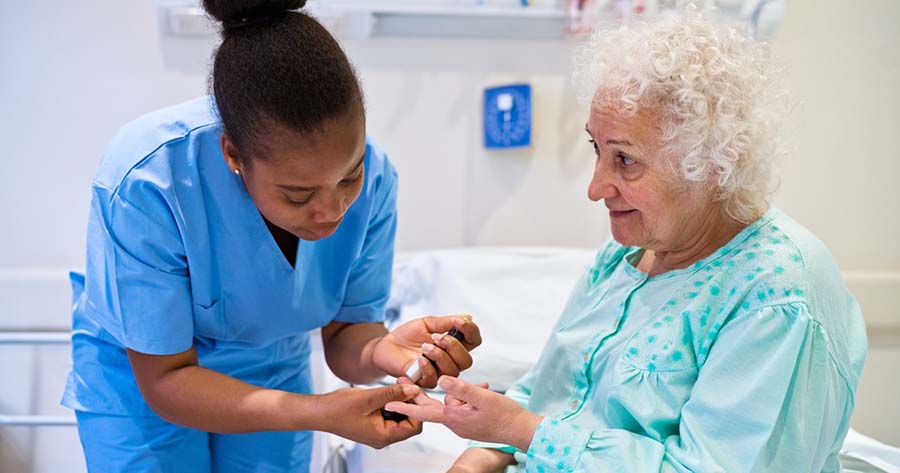It is now at least 2 years since the first diabetes consultant nurse was appointed and there have been several appointments since then, although they are not evenly spread throughout the country. The north of England seems to be doing well in terms of these roles, as do the south coast of England and London. Scotland, Wales and Northern Ireland do not have any consultant nurse posts and neither do the South West and Eastern regions as far as I know. As the initial ‘flurry’ seems to have now slowed, and it is some time since a diabetes nurse consultant has been appointed, it will be interesting to see if further posts are developed and where they will occur.
Impact of the NSF for Diabetes
It is possible that areas currently without consultant nurses have been distracted by the NSF for Diabetes. There is much effort going into the development of services as described in the supplementary information. Developing consultant nurse posts was not an explicit recommendation of the NSF for Diabetes, and although such posts have the potential to lead the development of services it appears there are currently other priorities. For example, there seems to be a burgeoning number of designated hospital diabetes nurse posts following the recommendation that these should occur.
There is also the initiative for growing and developing specialist nurses in primary care (DoH, 2002). With primary care organisations being relatively new bodies which are still ‘bedding down’, progressing nurse consultant posts as well as diabetes specialist nurses and facilitators may be too much to expect at this point in time.
Agenda for Change
Another current distraction is likely to be Agenda for Change, as described by Mike Smith in this issue (P105–107). With energy going into ensuring that existing job descriptions are accurate and up to date and posts are correctly banded, it is understandable if diabetes nurses are focusing on this rather than on initiating new consultant nurse posts at the moment.
A need for information
A further issue which may be relevant is a lack of information about the effectiveness of diabetes consultant nurses. The national impact of diabetes nurse consultant posts is, as yet, not clear, although they seem to be relatively prolific in terms of publication. Unfortunately, the impact of DSNs in general is also not evident.
The Cochrane report exploring the evidence for the effects of DSNs on the metabolic control of people with diabetes concludes that there is no clear evidence that glucose control is improved for more than short periods of time and that there is no demonstrable impact on quality of life (Loveman et al, 2004). However, what is clear is that there is an unsatisfactory evidence base in relation to the effectiveness of diabetes nurses. Given that the impact of the consultant nurse role also needs to be evaluated perhaps a comparative study would be useful to determine the potential advantages of consultant nurses to people with diabetes as opposed to ‘ordinary’ DSNs.
The value of DSNs is not only demonstrated in terms of glycaemic control and quality of life; one of the key roles of the consultant nurse is to develop patient-centred services. It would advantageous to those thinking about developing such roles in the future to be able to acquire information about what successes have been achieved by consultant nurses in other areas. One way of enabling this is to encourage those in post to continue publishing and sharing their achievements for the benefit of others.





Key scientific developments presented at the conference.
6 Aug 2025